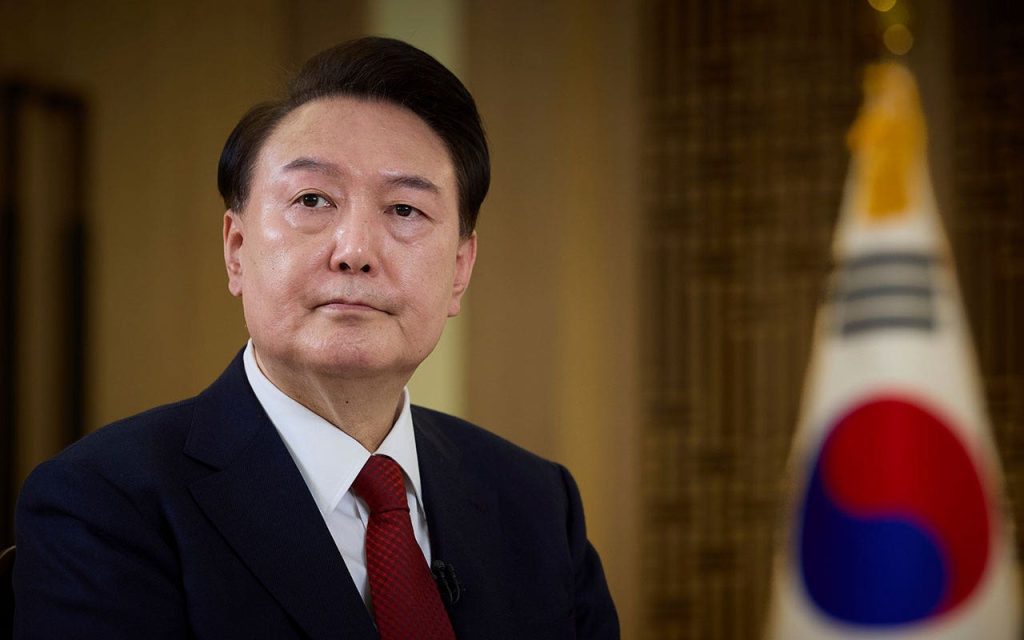The political landscape of South Korea has been dramatically reshaped by the unfolding crisis surrounding suspended President Yoon Suk Yeol, culminating in a second attempt by authorities to detain him at his Seoul residence. This unprecedented situation stems from Yoon’s ill-fated declaration of martial law in December, a move met with widespread condemnation both domestically and internationally, ultimately leading to his suspension by parliament. The ongoing standoff between investigators and Yoon’s supporters, bolstered by legal arguments surrounding the execution of the arrest warrant, underscores the deep divisions and complexities of this political crisis.
On Wednesday, a large contingent of approximately 3,200 police officers converged on Yoon’s sprawling estate in another bid to enforce the arrest warrant issued against him. This action followed a previous unsuccessful attempt in early January, which resulted in a protracted standoff between military guards and the president’s security detail. The tense atmosphere surrounding the residence was further amplified by the presence of hundreds of Yoon’s supporters, who had gathered to protest the potential arrest of their embattled leader. Footage captured the scene as police officers advanced towards the residence, reportedly pushing through crowds of protestors, highlighting the escalating tension and the authorities’ determination to carry out the warrant.
The legal basis for the arrest warrant revolves around Yoon’s controversial declaration of martial law on December 3rd. Frustrated by the opposition-dominated parliament’s resistance to his political agenda, Yoon invoked martial law, a drastic measure that sent shockwaves through the nation and drew international concern. Critics viewed this unprecedented action as a blatant disregard for democratic norms in a country known for its political stability within the Asian region. Parliament responded swiftly and unanimously, rejecting the declaration and subsequently voting to suspend Yoon from office.
The execution of the arrest warrant, however, has been fraught with challenges. Yoon’s legal team has mounted a vigorous defense, arguing that the warrant cannot be enforced due to a law prohibiting non-consensual searches of locations potentially connected to military secrets. This legal argument adds another layer of complexity to the already volatile situation, creating a legal impasse that has hindered the investigation. Furthermore, Yoon’s lawyers have condemned the warrant as an attempt to publicly humiliate the suspended president, further fueling the political firestorm.
This arrest warrant marks a historic first in South Korea, as no sitting president has ever faced such a legal measure. The gravity of the situation is underscored by the Acting President Choi Sang-mok’s statement emphasizing the need to avoid physical conflict between state agencies. He warned that those responsible for any untoward incidents would be held accountable, reflecting the delicate balance the government is trying to maintain amidst this crisis. The political implications of this standoff are profound, potentially destabilizing the country and eroding public trust in the government.
The fate of Yoon Suk Yeol now rests with the Constitutional Court, which will determine whether to uphold the parliamentary suspension and formally impeach him. A three-fourths majority is required for impeachment, and the next hearing is scheduled for Thursday. The court’s decision will have far-reaching consequences for South Korean politics, impacting the country’s stability and its standing on the international stage. The unfolding events surrounding Yoon’s attempted arrest and impending impeachment trial have captivated the nation, leaving its citizens in anticipation of the final verdict.

